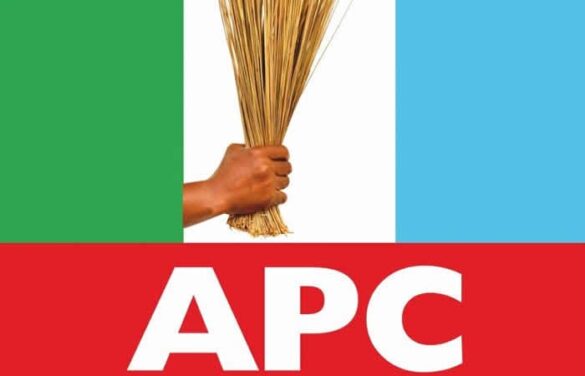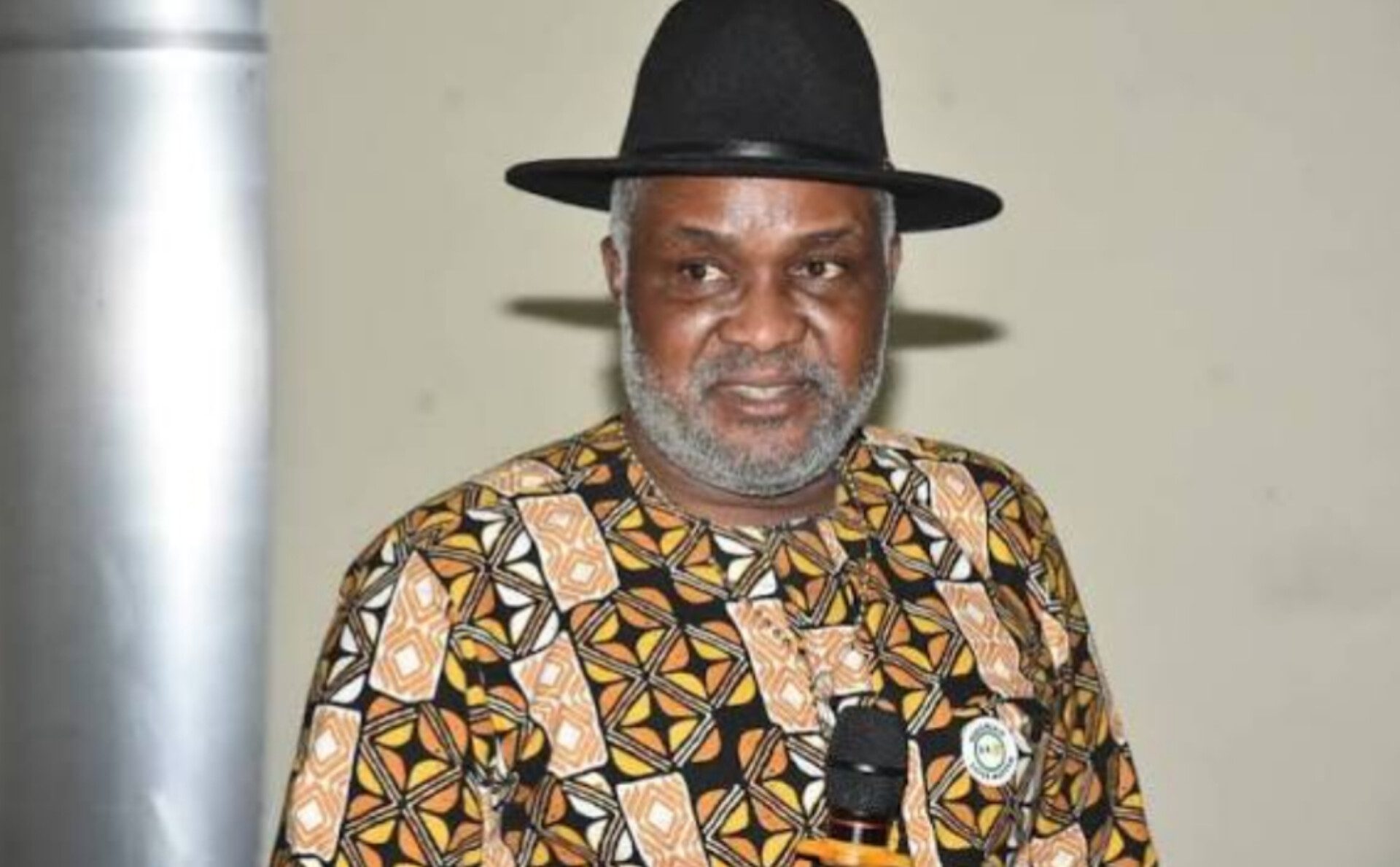By Engr Bolaji Ekundayo
Having read a story credited to a so-called group of lawyers, which styles itself as Coalition of Nigerian Legal Practitioners, under the above title, which was published in an online news medium on Tuesday, October 31, 2023, we are compelled to make the following statements, clarifications, and disavowals in ripostes.
Whereas the Coalition is entitled to its right of association and expression, the exercise of that right must be responsibly pursued in the interest of the common good of the nation. It will amount to outright treachery to deploy that right in promotion of mischief, misinformation and falsehood in deliberate and desperate bid to demonize the Chief Executive Officer (CEO) of the Nigerian National Petroleum Company Limited (NNPCL), Mele Kyari.

We are in a period of partisan frenzy and while it is understandable that various interests would be asking for the heads of others in order to supplant them with their proxies or candidates, it our considered view that a verifiable record of performance should not be dismissed with a wave of the hand just to accomplish a deviously self-serving end or group interest.
Skimming through the report in question, it was clear that the reasons canvassed by the so-called Coalition of Nigerian Legal Practitioners for writing a petition to President Bola Tinubu and calling for an overhaul of the NNPCL were tenuous: Petrol scarcity and arbitrary price hikes.
Members of the Coalition have obviously displayed their apparent lack of understanding of the workings of the NNPCL and the intricate dynamics of the fuel pricing template in a deregulated downstream petroleum sector and which is much more circumscribed in the aftermath of fuel subsidy removal. Should the Coalition be blaming the NNPCL for hikes in pump price of fuel when it is determined by the forces of demand and supply of the produce and price of crude in the international market? The hikes in fuel prices are not and cannot, therefore, be attributed to the administrative decision or action of the NNPCL management.
The Coalition position that Premium Motor Spirit (PMS) is scarce is outright falsehood. The fact of product availability is obvious. Motorists are moving in and out of fuel stations nationwide to buy the product. The only point that enjoys nationwide approbation is that a vast majority of motorists are illiquid and therefore their weak purchasing power cannot accommodate purchase of PMS in the quantities that they were hitherto buying it. The monetary and fiscal policies that would appear to constrain the purchasing power of Nigerians are not directly within the remit of the NNPCL.
The Coalition should very well refocus its attention on helping to create a conducive environment for the NNPCL to operate maximally for revenue generation to bolster the nation’s forex market and foreign reserves. Protest marches will be counterproductive and would not augur well for any non-state actors to embark upon against the NNPCL or the federal government in its entirety.
The NNPCL management, under the superintendence of Mele Kyari, has patriotically and assiduously worked towards building a stable oil industry for the nation’s growth and development. He has done a good job in positing resounding successes since stepping in the saddle.
Specifically, when Mele Kyari assumed duty as the group managing director of the now-defunct Nigerian National Petroleum Corporation (NNPC) on July 7, 2019, it was at a critical period not only in the life of the corporation but also for the entire Nigerian oil and gas sector as well as the national economy.
It was a turbulent period characterised by low production, burgeoning vandalisation of oil pipelines, oil theft on a grand scale, and demoralised staff members of the corporation. But as an insider, he understood very well the workings of the NNPC system. Within days of his appointment, he unveiled his “Roadmap to Global Excellence” anchored on the TAPE Agenda. In the roadmap, TAPE represents Transparency, Accountability, and Performance Excellence. Throughout his time as NNPC GMD, TAPE remained the guiding rubric of his administration at the corporation.
With his appointment by Nigeria’s President Muhammadu Buhari as CEO of NNPCL, the successor company to the NNPC under the new dispensation ushered in by the petroleum industry act, which came into force in 2021, the TAPE became the standard for steering the new company forward in a global economy.
Kyari had scaled a number of hurdles, including the mindless theft of Nigeria’s oil by criminal cabals and individuals, which had left Nigeria for a long time unable to meet its oil production quota. The NNPCL management, under Kyari’s astute leadership, launched the “Crude Theft Monitoring Application”. The portal has application options for reporting incidences of crude theft, with prompt follow-up and responses, and another one for crude sales document validation. In a subsequent operation that followed, Kyari announced the discovery of a four-kilometer illegal oil connection line from Forcados Terminal into the sea which had been in operation for nine years.
Certainly, efforts at checkmating crude oil theft and illegal refineries have been yielding positive results as there has been a significant spike of daily oil production to 1.6 million barrels per day. In addition, according to Fourth Quarter 2022 figures released, Nigeria has regained its position as the largest crude oil producer in Africa, ahead of Algeria’s 1.021mb/d and Angola’s 1.088mb/d in November 2022.
The management of NNPCL under Kyari addressed persistent oil loss that the old NNPC had suffered before he became its helmsman in 2019. In 2022, the company posted its second consecutive year of ‘profit’ announcing N674.1 billion in the 2021 financial period and growing it from N287 billion in 2020. The figure represented an increase of N387 billion or 134.8% when compared to the previous N287 billion recorded in 2020. Kyari, who made the disclosure via the verified Twitter handle of the company, said the improvement followed the approval of the 2021 audited financial statements by the board of the oil company. He said the NNPC Limited has progressed to a new performance level from N287 billion profit in 2020 to N674bn profit after tax in 2021, moving higher by 134.8% year-on-year profit growth.
Aside from recording profit for the company, Kyari has also led the NNPCL to resolve age-old disputes with its business partners, notably the International Oil Companies (IOCs). This is part of its efforts at boosting Nigeria’s crude production and unlocking investments in the Deepwater space in the aftermath of the coming into being of the PIA. Consequently, the NNPC and the IOCs signed various production sharing contracts (PSCs) agreements that would ensure the production of about 10 billion barrels of crude oil and generate over $500bn. The agreements are the Production Sharing Agreements, Dispute Settlement Agreements, Settlement Repayment Agreements, and Escrow Agreements.
A notable accomplishment of Kyari’s leadership of NNPCL is the payment of Nigeria’s joint venture cash call arrears to the IOCs totaling $5.1 billion. This was made possible through the introduction of the Alternative Funding Approach (AFA), which replaced the erstwhile cash-call payment model. The AFA model allowed for the utilization of NNPC’s own funds to finance its share of joint venture operations, thereby reducing the country’s reliance on external borrowing and increasing the flow of investment into the industry. Many oil-producing African countries have since adopted this initiative.
Significantly, NNPCL and Addax Petroleum Company signed an asset transfer agreement to bring an end to the dispute surrounding Oil Mining Leases 123/124 and 126/137. With the agreement, the dispute over OMLs 123/124, 126/137, operated by Addax Petroleum Nigeria Limited, has finally been resolved. The production sharing contract for the blocks was initially signed in 1973 between NNPC and Ashland but was terminated after 25 years.
Besides, NNPC signed various Memoranda of Association (MoU) with many countries, including the national oil companies of Ghana, Gambia, Guinea, Guinea Bissau, and Sierra Leone in furtherance of the planned Nigeria-Morocco Gas pipeline project. The Nigeria-Morocco Gas Pipeline (NMGP), an initiative of the federal government of Nigeria and the Kingdom of Morocco, is a 5,600 kilometers gas pipeline project traversing 13 African countries namely: Nigeria, Benin, Togo, Ghana, Cote d’Ivoire, Liberia, Sierra Leone, Guinea, Guinea Bissau, Gambia, Senegal and Mauritania to Morocco. When completed, the project would supply about 3 billion standard cubic feet of gas per day (3bscf/d) from Nigeria to the Kingdom of Morocco and subsequently to Europe. In 2022, the NNPC Limited sealed a $1.4 billion external project finance agreement for hydrocarbon projects in the Niger Delta. Codenamed Project Panther (under the NNPCL/Chevron Nigeria Limited joint venture), the agreement was signed at a ceremony in London.
That same 2022, the NNPCL, pursuant to its vision of maintaining a leading position in the Nigerian petroleum downstream sector, acquired OVH Energy Marketing (OVHEM), owner and operator of the Oando downstream assets. Through this acquisition, NNPC Retail Limited will build on the existing success of OVH and operate model service outlets leveraging OVH’s extensive asset base and commercial capabilities. But, by far, one of the most impressive accomplishments of Kyari’s stewardship at NNPCL is the flagging off in November 2022 of the Kolmani Integrated Development Project in Bauchi State marking the commencement of effort to commercially exploit oil in the Northern part of Nigeria.
The Kolmani Oil Field, estimated to have a reserve of about one billion barrels of crude oil, OPL 809 and 810, lies in the Gongola Basin of the Upper Benue Trough, straddling Bauchi and Gombe States. The oil blocks are owned by the NNPCL as a concessionaire with New Nigeria Development Company Ltd, Africa Oilfield Movers Ltd, and SEEPCO as partners. The well is expected to produce 50,000 barrels of oil per day during the first phase.
Equally noteworthy is the near completion of the Ajaokuta-Kaduna-Kano Gas Pipeline Project, which is currently at 70 percent. The AKK Gas Pipeline Project was inaugurated by President Muhammadu Buhari in June 2020. Kyari said over $1.1 billion of the $2.5 billion, earmarked for the over 600 kilometers facility, had been spent so far with the entire money coming from NNPCL’s own funds. The AKK Gas Pipeline Project will have the capacity to transport two billion standard cubic feet of natural gas daily to three proposed independent power plants in Abuja, Kaduna, Kano, and other gas-based industries, including other identified and proposed commercial off-takers along the entire pipeline route. Kyari was quoted to have said that the project was one of the most massive projects the NNPCL had undertaken and was of “immense proportion and value to our country and to the socioeconomic growth of our country.”
In addition to the giant strides outlined above, Kyari had also initiated the rehabilitation and upgrade of the Port Harcourt, Warri, and Kaduna refineries. He had also unveiled programmes and policies that had enhanced transparency and efficiency in the operations of the company. These include the setting up of a new trading subsidiary, the establishment of a new crude oil marketing division, and the implementation of a new performance management system, which enhanced accountability in the Nigerian oil and gas sector by publishing monthly financial and operational reports.
Without a doubt, appointing Kyari to head the NNPCL is one of the best decisions taken by President Buhari as leader of Africa’s most populous nation. It is also significant that President Bola Tinubu is tapping Kyari’s expertise. This scenario is exciting to discerning industry stakeholders, but not mischief makers planning and sponsoring protests.
Dr. Ekundayo, a petrophysicist, writes in from Port Harcourt, Rivers State.




